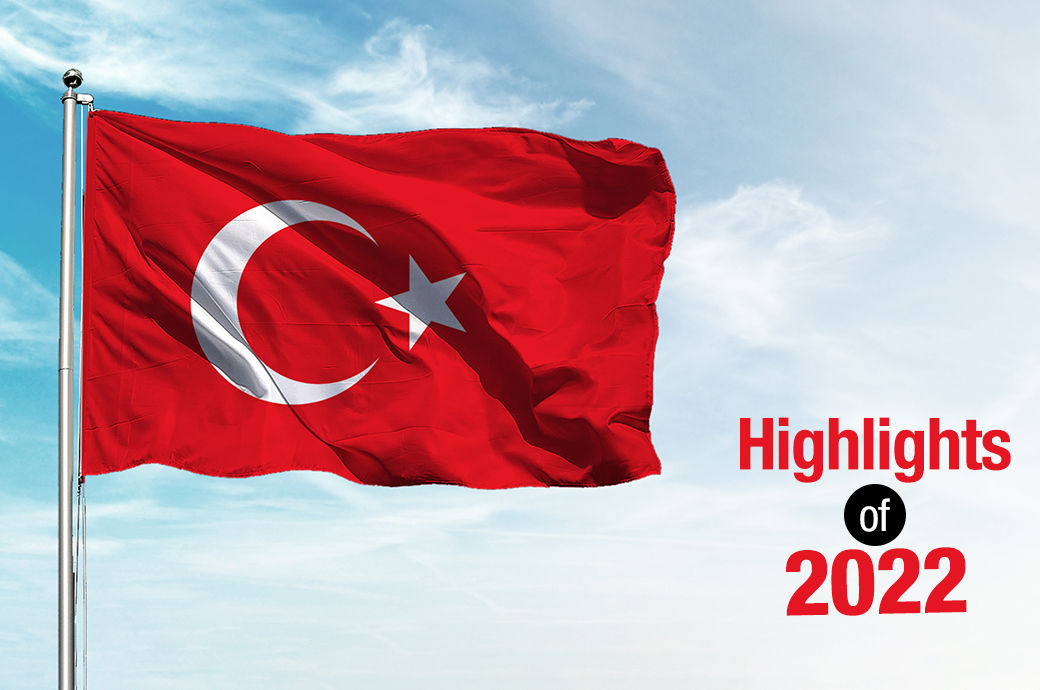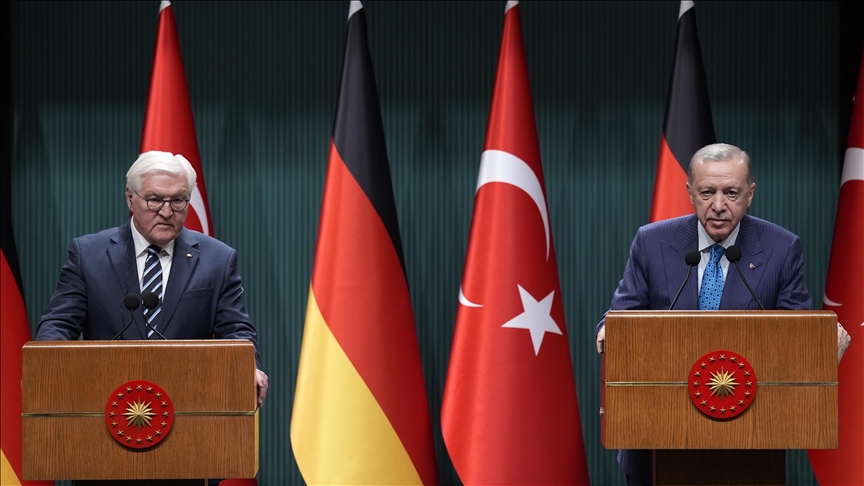High inflation, slow growth, GittiGidiyor closure mark 2022 in Turkiye
Here is a peek into some of the major developments in the country last year.
High inflation, a slowdown in growth in the second half, efforts to improve foreign trade ties with regional neighbours and South America, an initiative to mentor Turkish firms to engage in e-commerce with the United States, a drop in the manufacturing capacity utilisation rate and closure of EBay’s marketplace business GittiGidiyor marked 2022 in Turkiye.
Policy
Runaway inflation and a collapsing lira reportedly pushed millions of Turkish citizens to the brink of financial ruin and hit farmers, retailers and factories. The lira steadily fell in value over the last 12 months, and official estimates put the country’s inflation rate at nearly 85 per cent in November.
Though strong growth was witnessed in the first half of 2022, leading indicators for the second half continue pointing to a slowdown in growth due to weakening foreign demand, the Turkish central bank said. Pressures on the manufacturing industry due to foreign demand and their limited impact on domestic demand and supply capacity were more pronounced. The bank’s monetary policy committee in November reduced the policy rate from 10.5 per cent to 9 per cent.
President Recep Tayyip Erdogan announced in March a value-added tax cut on several products to counter inflation. He approved the country’s new Medium Term Programme (MTP) with updated economic goals for the 2023-2025 period. The programme projected inflation to fall to 65 per cent by 2022 end and 24.9 per cent in 2023. It expects the economy to grow by 5 per cent in 2023 and by 5.5 per cent in 2024 and 2025. Inflation is projected to decrease to 13.8 per cent in 2024 and 9.9 per cent in 2025.
The country’s manufacturing capacity utilisation rate decreased to 75.9 per cent in December 2022 from 76.9 in November, according to a survey of 1,734 companies conducted by the central bank. It was 76.6 per cent in May.
Foreign Trade
In the January-October period, Turkiye’s exports increased by 15.4 per cent and exceeded $209 billion and $253 billion in the 12 months prior to that. The ready-to-wear clothing segment ranked as the third sector with the most exports at $1.7 billion.
The MTP expects exports to grow, hitting $255 billion by the end of 2022, $265 billion in 2023, $285 billion in 2024 and $305 billion in 2025.
Turkiye opened the door to foreign trade cooperation with the United Arab Emirates, Egypt, Israel, Saudi Arabia and Armenia with its new economic strategy. President Erdogan worked to repair strained regional ties. An unofficial embargo imposed by Saudi Arabia on Turkish products was lifted in June. A large Israeli trade delegation visited Turkey in December to meet exporters as both sides mend ties.
Turkey and Greece signed a protocol in January to enhance trade relations and cooperation at the fifth meeting of the Turkish-Greek Joint Economic Committee in Athens. Matters of mutual interest, including ways to improve bilateral trade volume, encouraging companies to develop joint ventures and strengthening cooperation in energy and transportation sectors, were discussed.
Pakistan and Turkiye signed a ‘trade in goods’ agreement in August to raise bilateral trade up to $5 billion. The latter offered concessions to Pakistan on 261 tariff lines, including immediate zero ratings on 123 items, under the deal. Islamabad, in turn, extended concessions on 130 tariff lines.
President Erdogan, who met his Uzbek counterpart Shavkat Mirziyoyev in Tashkent in March, said the government wants to raise bilateral trade with Uzbekistan to $5 billion within a year.
Turkiye and Kazakhstan announced in May to continue their solidarity on platforms like the United Nations Economic Cooperation Organisation and the Organisation of Turkic States. During Kazakh President Kassym-Jomart Tokayev’s visit to Ankara, Erdogan said both sides will achieve their targeted $10-billion in annual bilateral trade.
The country also tried to deepen ties with South America. During Turkish foreign minister Mevlut Cavusoglu’s six-country tour of the region in April, he reiterated his country’s will to strengthen such cooperation and raise bilateral trade with the continent. He visited Uruguay, Brazil, Ecuador, Colombia, Panama and Venezuela.
Garments
Exporters revised downward year-end targets because of a drop in new orders amid signs of global slowdown and inflation. The apparel industry felt the heat of volatile Europe and reduced export growth target by 15 per cent. Garment exports kept fluctuating.
Garments workers welfare organisation ACT announced in August that it has enacted the Turkiye Freedom of Association Annex as an annex to the ACT Memorandum of Understanding (MoU). The FOA Annex contextualises global freedom of association commitments made by brands in the MoU.
The Annex was agreed between 17 ACT member brands sourcing from Turkiye and the Global Trade Union Federation IndustriALL including its affiliates in Turkiye.
E-commerce & Logistics
The Union of Chambers and Commodity Exchanges of Turkey (TOBB) and the American Chamber of Commerce (AmCham) Turkey decided in February to mentor Turkish companies to help them engage in digital business with the United States. The ‘e-Commerce Mentoring Programme’ was aimed at small and medium scale enterprises.
In June, eBay decided to close GittiGidiyor, its marketplace business in Turkiye. The former acquired the majority stake in the latter in 2011 and operated the business as an independent platform.
Amazon in September opened its first fulfilment centre in Turkiye, for which it is investing more than $100 million at the new site in Tuzla, Istanbul.
Air cargo carrier Turkish Cargo built air cargo bridges for cross-border e-commerce shipments. It strengthened its strategic partnership with Shopee, a Singapore-based e-commerce platform.
Fibre2Fashion News Desk (WE)



